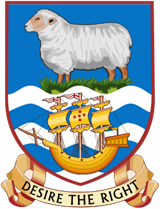Login
Support Sailonline
If you haven't already - join the SAILONLINE YACHT CLUB!
Please also consider making a donation - all amounts are greatly appreciated!
Board
»
General Discussion
»
Boat planning.
Please login to post a reply.
|
Posted by JB  |
|
|
From Wiki:
“When it is at rest, a vessel's weight is borne entirely by the buoyant force. At low speeds every hull acts as a displacement hull, meaning that the buoyant force is mainly responsible for supporting the craft. As speed increases, hydrodynamic lift increases as well. In contrast, the buoyant force decreases as the hull lifts out of the water, decreasing the displaced volume. At some speed, lift becomes the predominant upward force on the hull and the vessel is planning.“. So, is it possible to put some SOL boats planning? (I was not thinking on the 100 ft barge…). Yes, it’s possible with just a simple adjustment on same parts of the boat Polar - have a look on the example for the VOR70 in the PDF attachment. To keep the things interesting, the exact spot of the rising BS can be kept secret and up to everyone discover doing some extra time on helm. Sail Fair. |
|
|
Posted by bonknhoot  |
|
|
Hi Joao
Quickly from Wikipedia V hull = 1.34 x sqrt{L} where: L is the length of the waterline in feet, and V hull is the so-called hull speed of the vessel in knots For a 70ft yacht, V hull is thus 8.37kn. Hull speed is the speed at which the vessel pushing through the water creates two non-interfering waves, one at the bow and one at the stern, and without a good whack of extra power the vessel can't ride out over the top of the bow wave in particular, and leave it behind as it were. However, once it does it is effectively planing. So... lang verhaal kort, the VO70 already planes like an F16! Clipping along |
|
|
Posted by sol |
|
|
The various characteristics of a boat's performance are already incorporated into the composite polar diagram that enables 100% actualization unless changing course.
|
|
|
Posted by kroppyer  |
|
|
Boats like the VO70 will plane, they are designed to do so. For boats that don't plane, there is a sort of maximum speed, hull speed. For the VO70 that would be about 12kts (or a little more). So whenever a VO70 sails faster than 12kts it's probably planing. A VO70 probably starts planing before it reaches its boatspeed.
But what that means, is that the polar, as is, already includes speeds at which the VO70 is planing. Attached is an image of the VO70_v4 polar with a line at boatspeed=12kts I reality there is a range in boatspeeds (also depends on wind/heeling angle) where the boat sometime planes, and sometimes doesn't. Usually you are surfing down a with a wave until you overtake it (or it overtakes you, when you're in a slower boat). So at some twa/tws the boatspeed is far from constant. The polar contains averaged speeds. A way to simulate planing would be by simulating surfing off waves. Giving a 10% bonus for 1 or 2 jumps, and then a 10% penalty after for some jumps after that. Or something like that. ___ EDIT: I see I was a little late, it's (almost) all already explained. --- Last Edited by kroppyer at 2014-04-04 08:27:59 --- |
|
|
Posted by Rod |
|
|
Surely the lines shown in the polar diagram already show the boat speed, wind speed and wind angle at which the hull is planing.
(Not to be too critical, it is "PLANING" without the double-"n", after the verb "to plane") Planing is shown by a small bulge in the polar lines at certain wind angles and speeds. Nothing further needs to be done! If it breaks, it's not strong enough--if it doesn't, it's too heavy. |
|
|
Posted by bonknhoot  |
|
|
A VO70 planing. As you can see, the bow wave has moved aft.
Clipping along |
|
|
Posted by JB  |
|
|
Thank you Jan, Kroppyer, Sol and Rod.
The first and my friend, for bringing some hydrodynamics to the subject. The second for is enlighten on boat Polars (and, by the way, also for his superb tool “SPINNACER”). Finally Rod, for bringing the “planing” in the right plane. So, the VOR70 can plane upwind? From the CSV file, at TWS = 12 kts and TWA = 51º, the corresponding BS = 12,154 kts (see also “SPINNACER” graphic in the attachment), which is above the hull speed calculated with empirical formula (note: dimensions are not coherent, speed units vs. length units), V,hull = 1,34 x sqrt (L) = 1,34 x sqrt (70) = 11,211 Kts. Or is it just possible for the VOR70 to be above his hull speed but not yet in planning mode in those conditions? Well I’ve never thought that the VOR 70 Polar already incorporated the planning effect, as it curves shapes doesn’t show it at all ( in a mathematic perspective: no “really” singular points in the curves). My primary idea was to bring some further interest and action to the race. An extra BS coming from planing would be nice, especially if the Polar zone for that purpose had to be discovered by each one (hence the different shapes suggested for that particular zone). In another perspective: a premium for being more time at the helm. I think the “non-routers”, namely, would appreciate that. Sail Fair. |
|
|
Posted by A2  |
|
|
*(Posted earlier as sol)
Everyone is given equal marks for skillful sailing such that the competition is decided by the judgement of the afterguard regarding navigation with respect to the weather & optimum route to destination. --- Last Edited by A2R at 2014-04-04 16:24:44 --- None so blind |
|
|
Posted by Rod |
|
|
There is something of a difference in the planing of a motorized speedboat hull, compared with planing in a sailing yacht. The equations describing the speed above which planing can occur assume that a considerable increase in horsepower is available, and that the hull will then plane.
This is usually not the case in sailing boats, where sail pressure results in max hull speed. Any increase in speed beyond this point must come from a large increase in windspeed. This is unlikely to occur in sailing because it usually results in a 'knock-down'. Instead, what we see happening is that hull speed gradually increases with increasing windspeed, and that natural result of this is that the hull gradually rises in the water, due to its shape. With reduced drag comes additional hullspeed, so that the hull is moving a small amount faster than it could if it still maintained the same immersed volume and surface area that it would have if measured while at rest. This explains why a polar diagram can indicate a higher hullspeed than the simple equation should allow. The net effect of all this is that a displacement sailboat approaches planing speeds gradually. This phenomenon interests me because I have been sailing and designing small radio-control sailboats in the Footy Class, and they exhibit a phenomenon called "nose-dancing", where the pressure of the wind on the sails causes the bow to submerge. Unlike larger boat classes, this is an almost stable condition that may continue for several seconds, until a broach occurs. The object of my current interests in Footy design involve trying to prevent "nose-dancing". If it breaks, it's not strong enough--if it doesn't, it's too heavy. |
|
|
Posted by JB  |
|
|
Dear Rod, I’m no specialist on boat design. Anyhow, this is what I think.
The Footy has a short hull - see pictures and plans in the attachment (data from http://www.scalesailing.com ). Without any disregard for the Footy, she has a shape like a “cube”: short length, high freeboard. The mast position is pushed to the bow and the bottom of the hull is banana shaped and very light, so, the extremities lack material/buoyancy, principally the bow. Dynamically speaking, the result has to be a boat with a high frequency longitudinal motion in both planes (short pendulum like): 1 - In the vertical plane (passing the boat’s “CG”) - causing the so called “nose diving”, with this motion helped by the curved hull shape; 2 - In the horizontal plane - causing the “nose dancing”. She doesn’t have enough length to cushion in due time the instability created by the above mentioned motions, so , Rod , she must be very hard to control, even in light wind conditions (immediately transferring the boat’s reaction to the bow when the wind enters and promoting the “nose diving”), and, I just imagine her sailing in little choppy waters… If the class rules permit, try to bring aft the mast’s application point and some weight. Maybe she will: 3 - Lose some upwind ability; 4 - Gain stability, and, 5 - a little downwind speed. Sail Fair. |
Races
Next Race: 00d 00h 00m
Current Races:
SSANZ Round North Island Race 2026 - Leg 3

The start time for this race may change at short notice to align with the real race. The confirmed start date and time will be announced via an in-race “L” flag message — Please monitor race communications closely.
Race #2013
INFO by brainaid.de
Sun Fast 3600 PARTICULARS
WX Updates:
0430 / 1030 / 1630 / 2230
Ranking: RNI - SUPBUD - SYC
Race starts: Mar 08th 21:00 Registration will open soon
GO TO RACE
South China Sea Race 2026
Welcome all to the South China Sea and a virtual chase in Cookson 50’s of the Rolex South China Sea fleet, racing 650nm – as the local red-footed booby flies – from Hong Kong to Subic Bay on the southern tip of The Philippines’ Luzon Island. Chances are it will be a fast downwind ride, so see how you can keep up with the real-life fleet which we hope to be able to follow on our monitors.
Race #2016
INFOby brainaid.de
Cookson 50 PARTICULARS
WX Updates:
0430 / 1030 / 1630 / 2230
Ranking: SUPBUD - SYC
Race starts: Mar 04th 03:20 Registration Open!
GO TO RACE
SSANZ Round North Island Race 2026 - Leg 2

The start time for this race may change at short notice to align with the real race. The confirmed start date and time will be announced via an in-race “L” flag message — Please monitor race communications closely.
Race #2012
INFO by brainaid.de
Sun Fast 3600 PARTICULARS
WX Updates:
0430 / 1030 / 1630 / 2230
Ranking: RNI - SUPBUD - SYC
Race starts: Mar 02nd 21:00 Registration Open!
GO TO RACE
Iceland to the Falklands 2026

Race #2010
INFO by brainaid.de
Maxi Trimaran PARTICULARS
WX Updates:
0430 / 1030 / 1630 / 2230
Ranking: OCQ1 - ROW - OCCH - SYC
Race starts: Mar 02nd 11:00 Registration Open!
GO TO RACE
SSANZ Round North Island Race 2026 - Leg 1

Race #2011
INFO by brainaid.de
Sun Fast 3600 PARTICULARS
WX Updates:
0430 / 1030 / 1630 / 2230
Ranking: RNI - SUPBUD - SYC
RACE CLOSE: Thursday,
March 5 at 2300 UTC.
Race starts: Feb 28th 21:00 Registration Closed
GO TO RACE
San Diego to Puerto Vallarta 2026

Race #2015
INFO by brainaid.de
Santa Cruz 70 Particulars
WX Updates:
0430 / 1030 / 1630 / 2230
Ranking: SUPBUD - SYC
Race starts: Feb 28th 20:00 Registration Open!
GO TO RACE
Beketov by Balloon 2026 - In Siberia
Way-back-when France and England, and Spain as well, were squabbling about who should control what of North America, only to lose the most of it to their own insurging colonists, their eastern European neighbour empire, Russia, was quietly assimilating vast, thinly nomadically populated territory of its own – Siberia! Amongst the many explorers and adventurers that served Russia so well in these conquests was the Cossack hetman Pyotr Beketov. Let’s pretend we’re he and eschewing horseback, let’s travel by balloon from Yekaterinberg to Krasnoyarsk – just a short 2000km (1100nm) section of the Trans-Siberian Express’ 9289km!
Race #1972
INFOby brainaid.de
SOL Balloon PARTICULARS
WX Updates:
0430 / 1030 / 1630 / 2230
Ranking: BOL - SYC
RACE CLOSE: Wednesday,
March 4 at 2300 UTC.
Race starts: Feb 03rd 13:00 Registration Closed
GO TO RACE
SYC Ranking
Series
- SYC ranking
- 2026 TSI
- 2026 TRQ4
- 2026 TRQ3
- 2026 TRQ2
- 2026 TRQ1
- 2026 TRCH
- 2026 TQD
- 2026 SUPerBUDdy
- 2026 SSANZ
- 2026 SPQ4
- 2026 SPQ3
- 2026 SPQ2
- 2026 SPQ1
- 2026 SPCH
- 2026 SHE
- 2026 ROW
- 2026 RNW
- 2026 RNI
- 2026 RMI
- 2026 RED
- 2026 OCQ4
- 2026 OCQ3
- 2026 OCQ2
- 2026 OCQ1
- 2026 OCCH
- 2026 NIA
- 2026 MIG
- 2026 MED
- 2026 LOOR
- 2026 CCZ
- 2026 BOL
- 2026 B2B
- 2025 TS
- 2025 TRQ4
- 2025 TRQ3
- 2025 TRQ2
- 2025 TRQ1
- 2025 TRCH
- 2025 TD
- 2025 SuperSOLer
- 2025 SSANZ
- 2025 SPRCH
- 2025 SPQ4
- 2025 SPQ3
- 2025 SPQ2
- 2025 SPQ1
- 2025 SHE
- 2025 SBB
- 2025 RWW
- 2025 RMI
- 2025 RED
- 2025 OCQ4
- 2025 OCQ3
- 2025 OCQ2
- 2025 OCQ1
- 2025 OCCH
- 2025 NT
- 2025 LOOR
- 2025 DN
- 2025 B2B
- 2025 ARQ4
- 2025 ARQ3
- 2025 ARQ2
- 2025 ARQ1
- 2025 ARCH
- 2025 ABS
- 2024 TS
- 2024 TRQ4
- 2024 TRQ3
- 2024 TRQ2
- 2024 TRQ1
- 2024 TRCH
- 2024 TD
- 2024 SVF
- 2024 SUPerSOLer
- 2024 SSANZ
- 2024 SPRQ4
- 2024 SPRQ3
- 2024 SPRQ2
- 2024 SPRQ1
- 2024 SPRCH
- 2024 SHE
- 2024 RTW
- 2024 RMS
- 2024 OCQ4
- 2024 OCQ3
- 2024 OCQ2
- 2024 OCQ1
- 2024 OCCH
- 2024 LOOR
- 2024 HILAT
- 2024 GWT
- 2024 DN
- 2024 CRW
- 2024 B2B
- 2024 ARQ4
- 2024 ARQ3
- 2024 ARQ2
- 2024 ARQ1
- 2024 ARCH
- 2023 TS
- 2023 TRQ4
- 2023 TRQ3
- 2023 TRQ2
- 2023 TRQ1
- 2023 TRCH
- 2023 TD
- 2023 SVS
- 2023 SUPerSOLer
- 2023 SSANZ
- 2023 SPRQ4
- 2023 SPRQ3
- 2023 SPRQ2
- 2023 SPRQ1
- 2023 SPRCH
- 2023 SHE
- 2023 RTW
- 2023 RNI
- 2023 RMS
- 2023 PIC
- 2023 OCQ4
- 2023 OCQ3
- 2023 OCQ2
- 2023 OCQ1
- 2023 OCCH
- 2023 LOOR
- 2023 DN
- 2023 ARQ4
- 2023 ARQ3
- 2023 ARQ2
- 2023 ARQ1
- 2023 ARCH
- 2022 TRQ4
- 2022 TRQ3
- 2022 TRQ2
- 2022 TRQ1
- 2022 TRCH
- 2022 TD
- 2022 Tall Ships
- 2022 SUPerSOLer
- 2022 SSANZ
- 2022 SSA
- 2022 SPRQ4
- 2022 SPRQ3
- 2022 SPRQ2
- 2022 SPRQ1
- 2022 SPRCH
- 2022 SHE
- 2022 OCQ4
- 2022 OCQ3
- 2022 OCQ2
- 2022 OCQ1
- 2022 OCCH
- 2022 NTR
- 2022 LOOR
- 2022 CTR
- 2022 ARQ4
- 2022 ARQ3
- 2022 ARQ2
- 2022 ARQ1
- 2022 ARCH
- 2021 TRQ4
- 2021 TRQ3
- 2021 TRQ2
- 2021 TRQ1
- 2021 TRCH
- 2021 TD
- 2021 Tall Ships
- 2021 SYCQ4
- 2021 SYCQ3
- 2021 SYCQ2
- 2021 SYCQ1
- 2021 SYCCH
- 2021 SUPerSOLer
- 2021 SSANZ
- 2021 SPRQ4
- 2021 SPRQ3
- 2021 SPRQ2
- 2021 SPRQ1
- 2021 SPRCH
- 2021 Shetland
- 2021 PAC6
- 2021 OCQ4
- 2021 OCQ3
- 2021 OCQ2
- 2021 OCQ1
- 2021 OCCH
- 2021 ESRW
- 2020 TSE
- 2020 TSA
- 2020 TRQ4
- 2020 TRQ4
- 2020 TRQ3
- 2020 TRQ2
- 2020 TRQ1
- 2020 TRCH
- 2020 Tasman Double
- 2020 SYCQ4
- 2020 SYCQ3
- 2020 SYCQ2
- 2020 SYCQ1
- 2020 SYCCH
- 2020 SUPerSOLer
- 2020 SSANZ
- 2020 SRQ4
- 2020 SRQ3
- 2020 SRQ2
- 2020 SRQ1
- 2020 SPRCH
- 2020 Shetland
- 2020 RTW
- 2020 RNI
- 2020 Odyssey
- 2020 OCQ4
- 2020 OCQ3
- 2020 OCQ2
- 2020 OCQ1
- 2020 OCCH
- 2020 A3
- 2019 TRQ4
- 2019 TRQ3
- 2019 TRQ2
- 2019 TRQ1
- 2019 TRCH
- 2019 Tasman Double
- 2019 Tall Ships
- 2019 SYCQ4
- 2019 SYCQ3
- 2019 SYCQ2
- 2019 SYCQ1
- 2019 SYCCH
- 2019 SUPerSOLer
- 2019 SSANZ
- 2019 SRQ4
- 2019 SRQ3
- 2019 SRQ2
- 2019 SRQ1
- 2019 SPRCH
- 2019 Shetland
- 2019 Round New Zealand
- 2019 OCQ4
- 2019 OCQ3
- 2019 OCQ2
- 2019 OCQ1
- 2019 OCCH
- 2018 TRQ4
- 2018 TRQ3
- 2018 TRQ2
- 2018 TRQ1
- 2018 TRCH
- 2018 Tasman Double
- 2018 Tall Ships
- 2018 SUPSOL
- 2018 SSANZ Triple
- 2018 SRQ4
- 2018 SRQ3
- 2018 SRQ2
- 2018 SRQ1
- 2018 SPRCH
- 2018 Shetland
- 2018 Shackleton Challenge
- 2018 OCQ4
- 2018 OCQ3
- 2018 OCQ2
- 2018 OCQ1
- 2018 OCCH
- 2018 40CH
- 2017 TS RDV
- 2017 TRQ4
- 2017 TRQ3
- 2017 TRQ2
- 2017 TRQ1
- 2017 TRCH
- 2017 Tasman Double
- 2017 Tall Ships
- 2017 SWR
- 2017 SUPSOL
- 2017 SSANZ Triple
- 2017 SSANZ RNI
- 2017 SPRR3
- 2017 SPRR2
- 2017 SPRR1
- 2017 SPRCH
- 2017 Red Dot
- 2017 OCQ4
- 2017 OCQ3
- 2017 OCQ2
- 2017 OCQ1
- 2017 OCCH
- 2017 40CQ3&4
- 2017 40CQ1&2
- 2016 TRQ4
- 2016 TRQ3
- 2016 TRQ2
- 2016 TRQ1
- 2016 TRCH
- 2016 Tasman Double
- 2016 Tall Ships
- 2016 SUPSOL
- 2016 SSANZ Triple
- 2016 SRQ4
- 2016 SRQ3
- 2016 SRQ2
- 2016 SRQ1
- 2016 SPRCH
- 2016 RTWR
- 2016 OCQ4
- 2016 OCQ3
- 2016 OCQ2
- 2016 OCQ1
- 2016 OCCH
- 2016 Corporate Open Gold
- 2016 A3
- 2015 TRQ4
- 2015 TRQ3
- 2015 TRQ2
- 2015 TRQ1
- 2015 TRCH
- 2015 Tasman Double
- 2015 Tall Ships
- 2015 SYQ4
- 2015 SYQ3
- 2015 SYQ2
- 2015 SYQ1
- 2015 SYCCH
- 2015 SUPSOL
- 2015 SSANZ Triple
- 2015 SRQ4
- 2015 SRQ3
- 2015 SRQ2
- 2015 SRQ1
- 2015 SPRCH
- 2015 OCQ4
- 2015 OCQ3
- 2015 OCQ2
- 2015 OCQ1
- 2015 OCCH
- 2015 Aegean Rally
- 2014 Timed Races Championship
- 2014 Tasman Double
- 2014 Tall Ships
- 2014 SYC Championship
- 2014 SSANZ Trio
- 2014 SSANZ RNI
- 2014 Sprints Championship
- 2014 Scandinavian Tour
- 2014 Round The World Race
- 2014 Ocean Championship
- 2014-2015 Sailonline World Race
- 2013 Tall Ships
- 2013 SYC Championship
- 2013 SSANZ B&G Simrad
- 2013 Capt Anderson
- 2012 W Australia Regatta
- 2012 Tall Ships
- 2012 SSANZ B&G Simrad
- 2012 RNZ Two Handed
- 2012 Global Challenge
- 2012 Ecker Cup
- 2012 Black Sea
- 2012 A3
- 2011 Vancouver Island
- 2011 Tasman Double
- 2011 SSANZ B&G Simrad
- 2011 SOL Global Challenge
- 2011 SJORA Series
- 2011 Scandinavian Tour
- 2011 Round North Island
- 2011 Asian Sprints
- 2011-2012 SOL World Race
- 2010 Tasman Double
- 2010 Ouzo Rally
- 2010 Iberian Tour
- 2010 Auckland Regional
- 2009 French SOLo
- 2009 Bosphore - Bretagne
- 2008 SYCC
- 2008 -2013 SYC Week Race Championship
- 2008 -2013 SYC Week-End Race Championship
- 2008 -2013 SYC Ocean Race Championship
- 2008-2009 Sailonline Ocean Race
- 2004 LOOR
Mobile Client
SYC members have the benefit of access to our mobile/lightweight web client!

